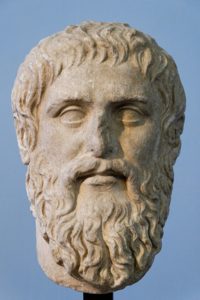The End of History (of Philosophy)
 Hanno Sauer on why philosophers spend far too much time reading and writing about dead philosophers:
Hanno Sauer on why philosophers spend far too much time reading and writing about dead philosophers:
What credence should we assign to philosophical claims that were formed without any knowledge of the current state of the art of the philosophical debate and little or no knowledge of the relevant empirical or scientific data? Very little or none. Yet when we engage with the history of philosophy, this is often exactly what we do. In this paper, I argue that studying the history of philosophy is philosophically unhelpful. The epistemic aims of philosophy, if there are any, are frustrated by engaging with the history of philosophy, because we have little reason to think that the claims made by history’s great philosophers would survive closer scrutiny today. First, I review the case for philosophical historiography and show how it falls short. I then present several arguments for skepticism about the philosophical value of engaging with the history of philosophy and offer an explanation for why philosophical historiography would seem to make sense even if it didn’t.
A devastating example:
Consider Plato’s or Rousseau’s evaluation of the virtues and vices of democracy. Here is a (non-exhaustive) list of evidence and theories that were unavailable to them at the time:
- Historical experiences with developed democracies
- Empirical evidence regarding democratic movements in developing countries
- Various formal theorems regarding collective decision making and preference aggregation, such as the Condorcet Jury-Theorem, Arrow’s Impossibility-Results, the Hong-Page-Theorem, the median voter theorem, the miracle of aggregation, etc.
- Existing studies on voter behavior, polarization, deliberation, information
- Public choice economics, incl. rational irrationality, democratic realism
The whole subsequent debate on their own arguments…When it comes to people currently alive, we would steeply discount the merits of the contribution of any philosopher whose work were utterly uninformed by the concepts, theories and evidence just mentioned (and whatever other items belong on this list). It is not clear why the great philosophers of the past should not be subjected to the same standard. (Bear in mind that time and attention are severely limited resources. Therefore, every decision we make about whose work to dedicate our time and attention to faces important trade-offs.)
This is obviously true so I think the more interesting question is why do philosophers do this?
Hat tip: Jason Brennan